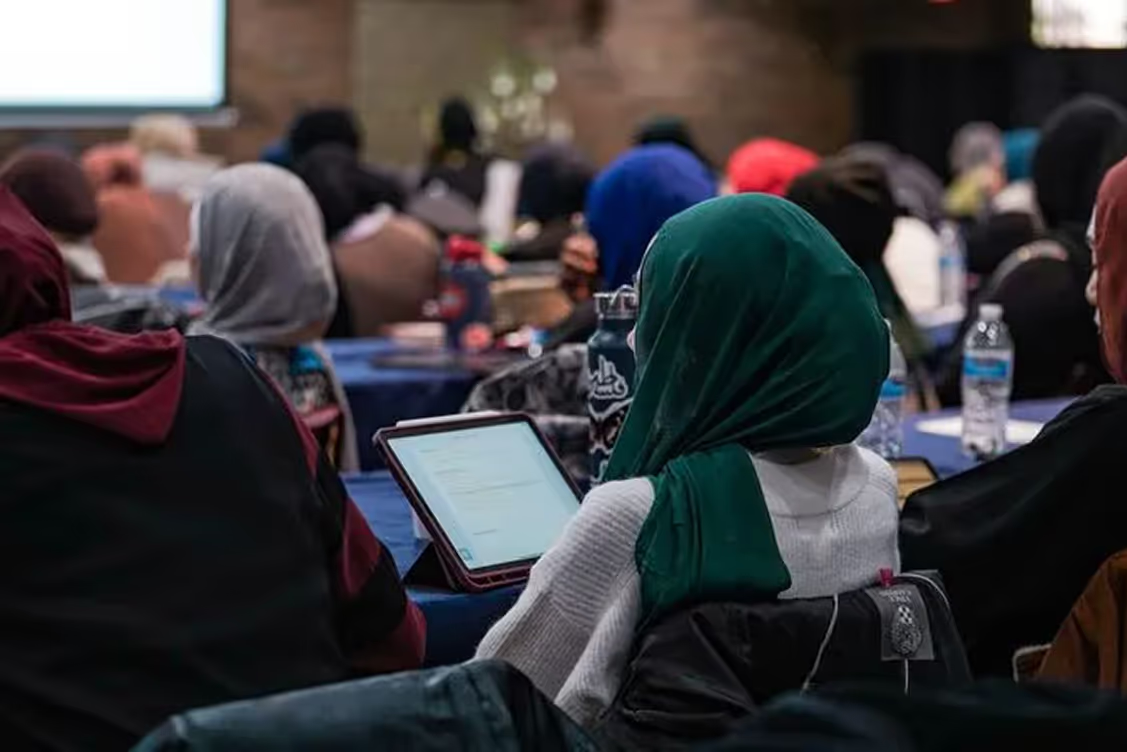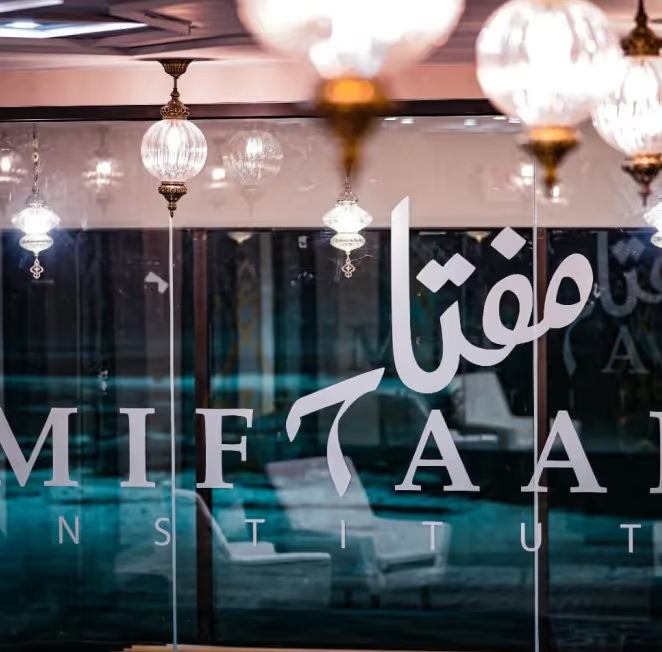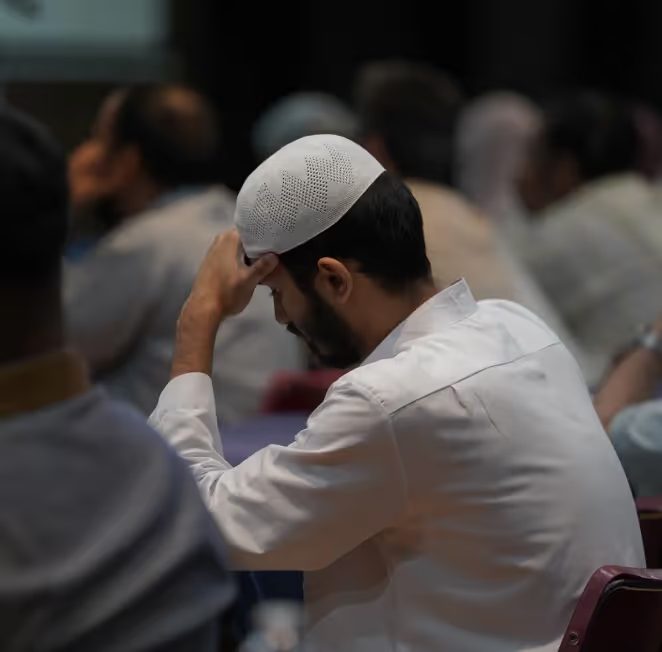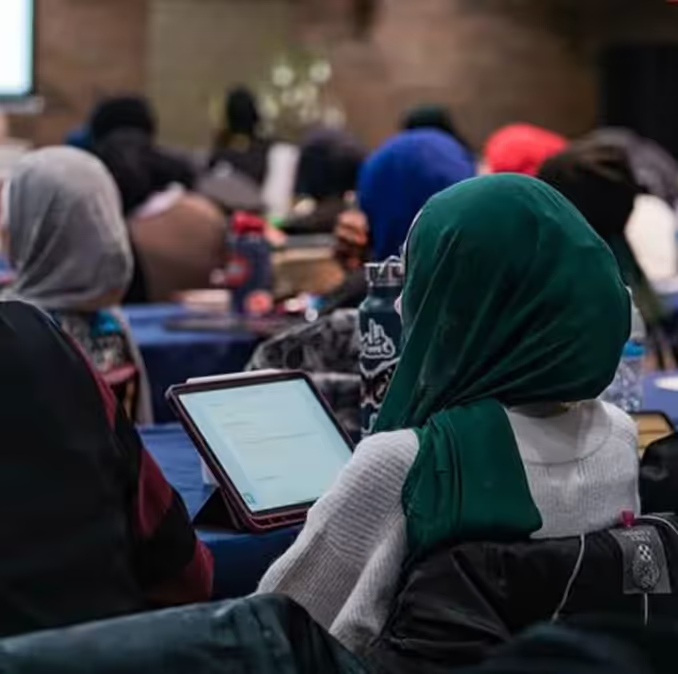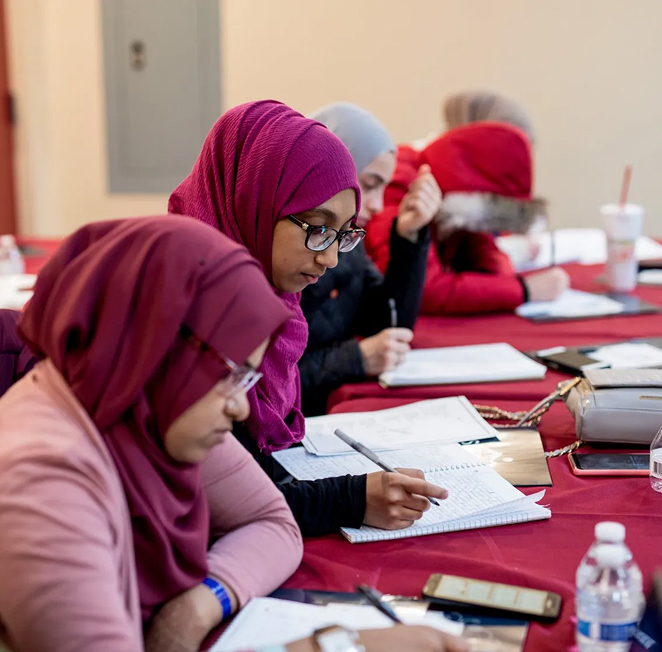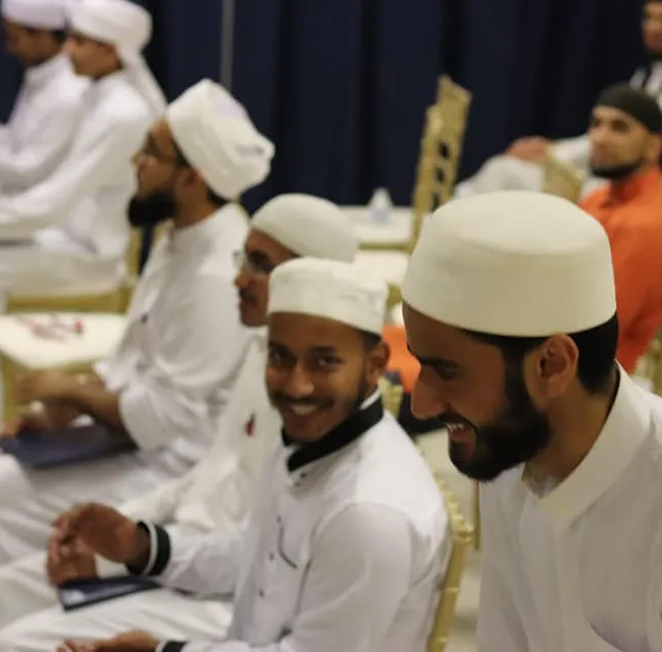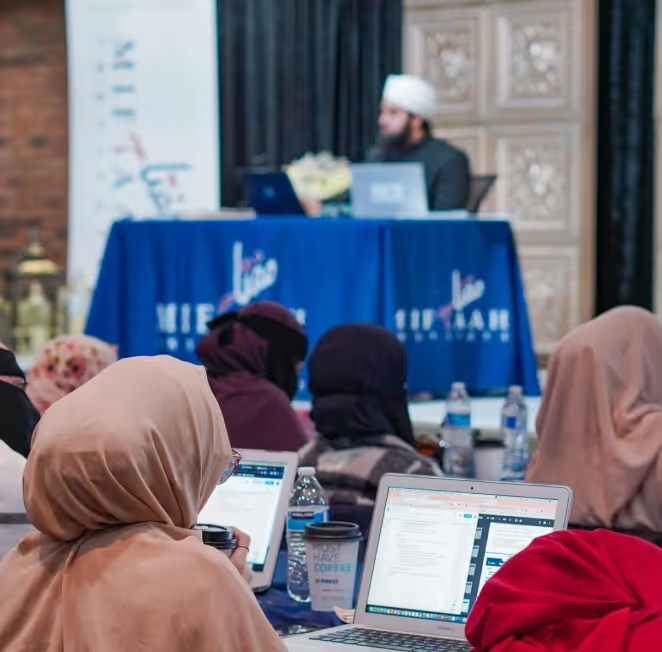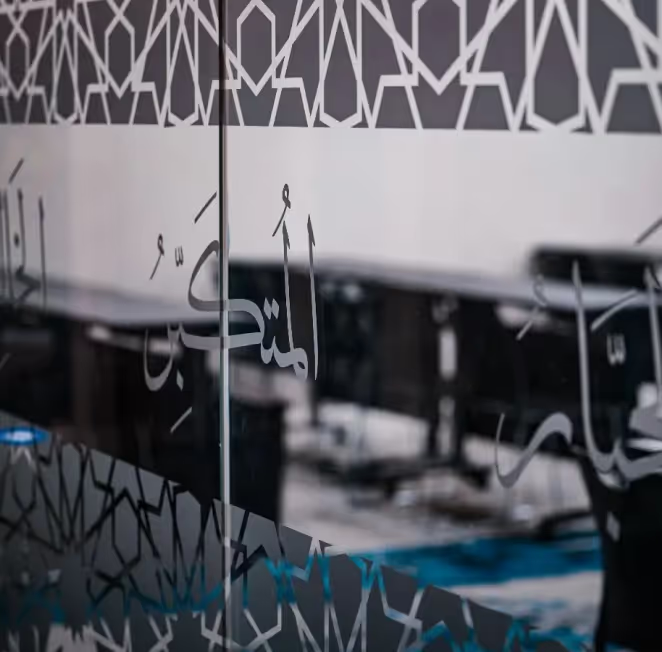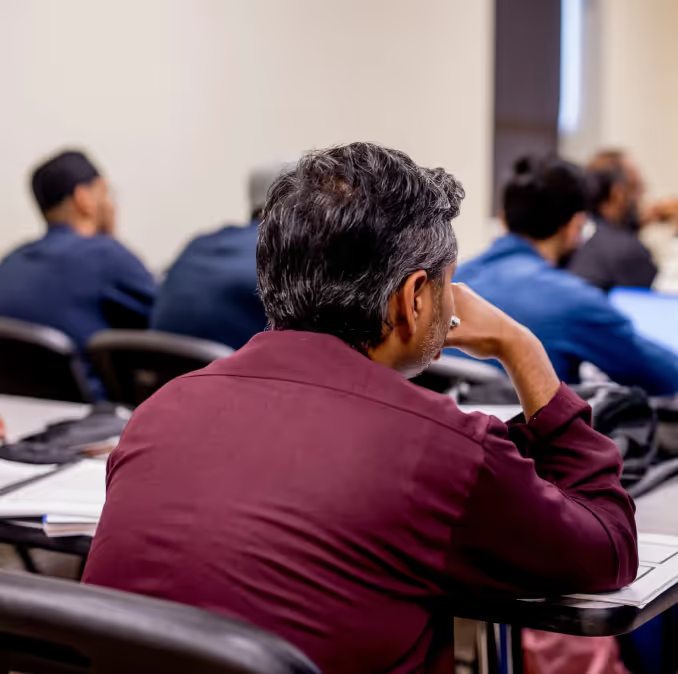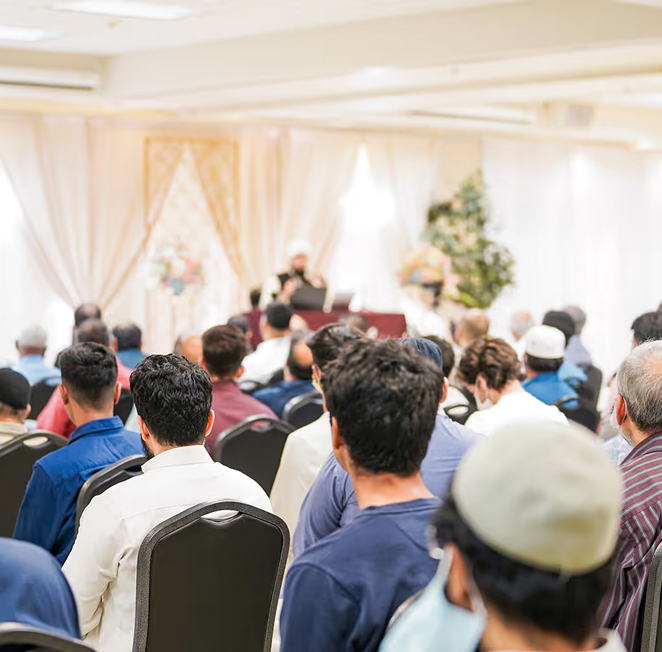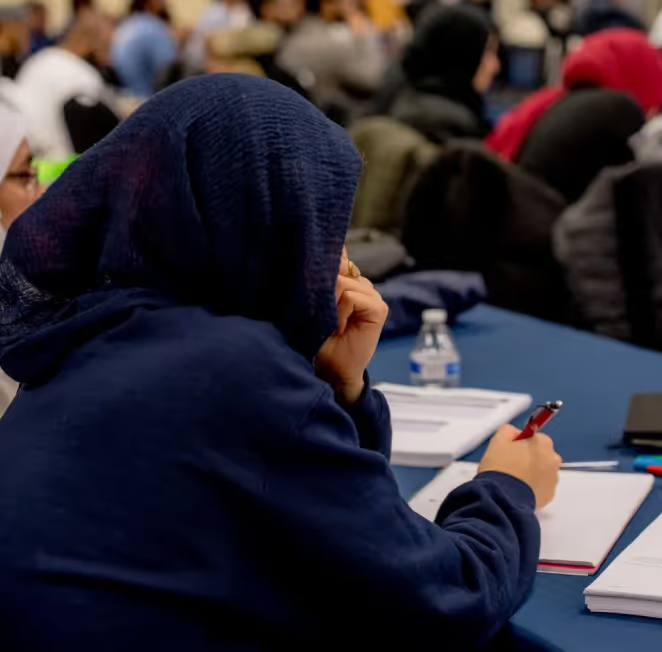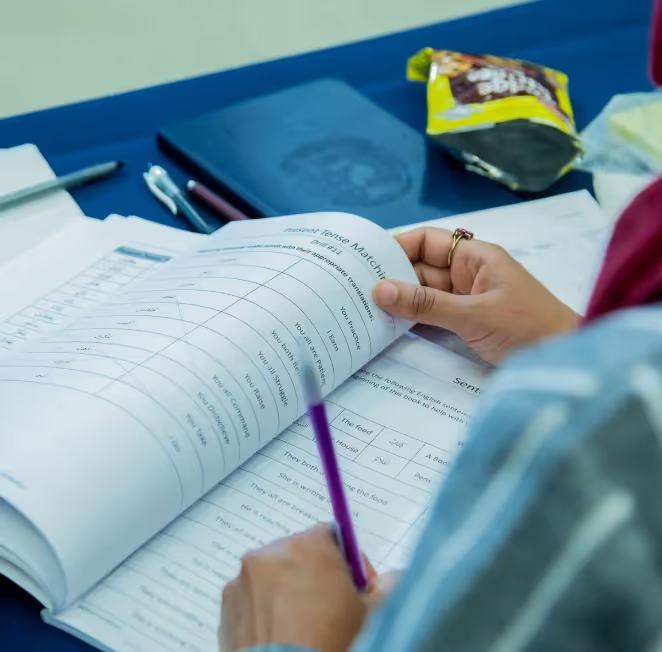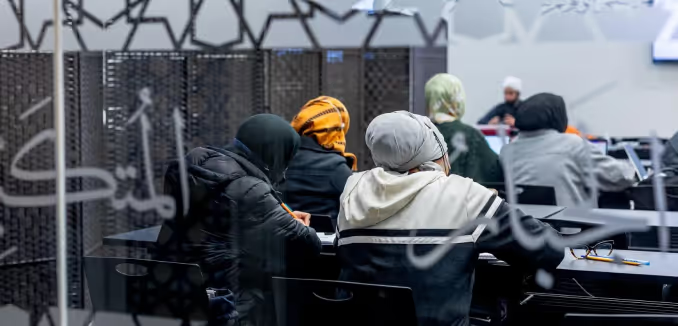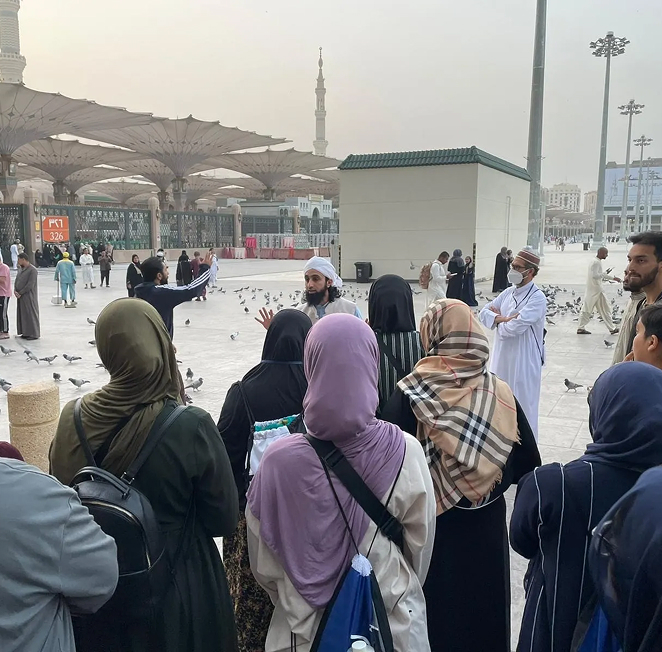.webp)



What is
MYNA Seminary
We are excited to launch our new collaboration with MYNA! The Miftaah-MYNA Seminary was created to provide sacred knowledge to the next generation of Muslims and Muslim leaders. Its purpose is to instill confidence in our youth leaders and community members through Islamic education in order to help them grow intellectually and spiritually. The courses will be taught online and will be accessible and affordable for all students.
What is the MYNA?
MYNA operates nationwide in a beautiful cycle centered around youth serving youth. These youth learn to be confident and empowered Muslims that become productive and engaged members of society.
As the youth organization of the Islamic Society of North America (ISNA), MYNA has touched the lives of many American and Canadian Muslim youth over the past 30 years offering the social support and national networks to mold "MYNA kids" into leaders in their local communities and the next generation of Muslim activists in America. Today, MYNA is growing bigger and better, spanning across more regions than ever and building a massive nationwide network of dedicated Muslim youth thinkers and activists who are determined to become leading voices for sociopolitical development and change in their own communities and abroad.
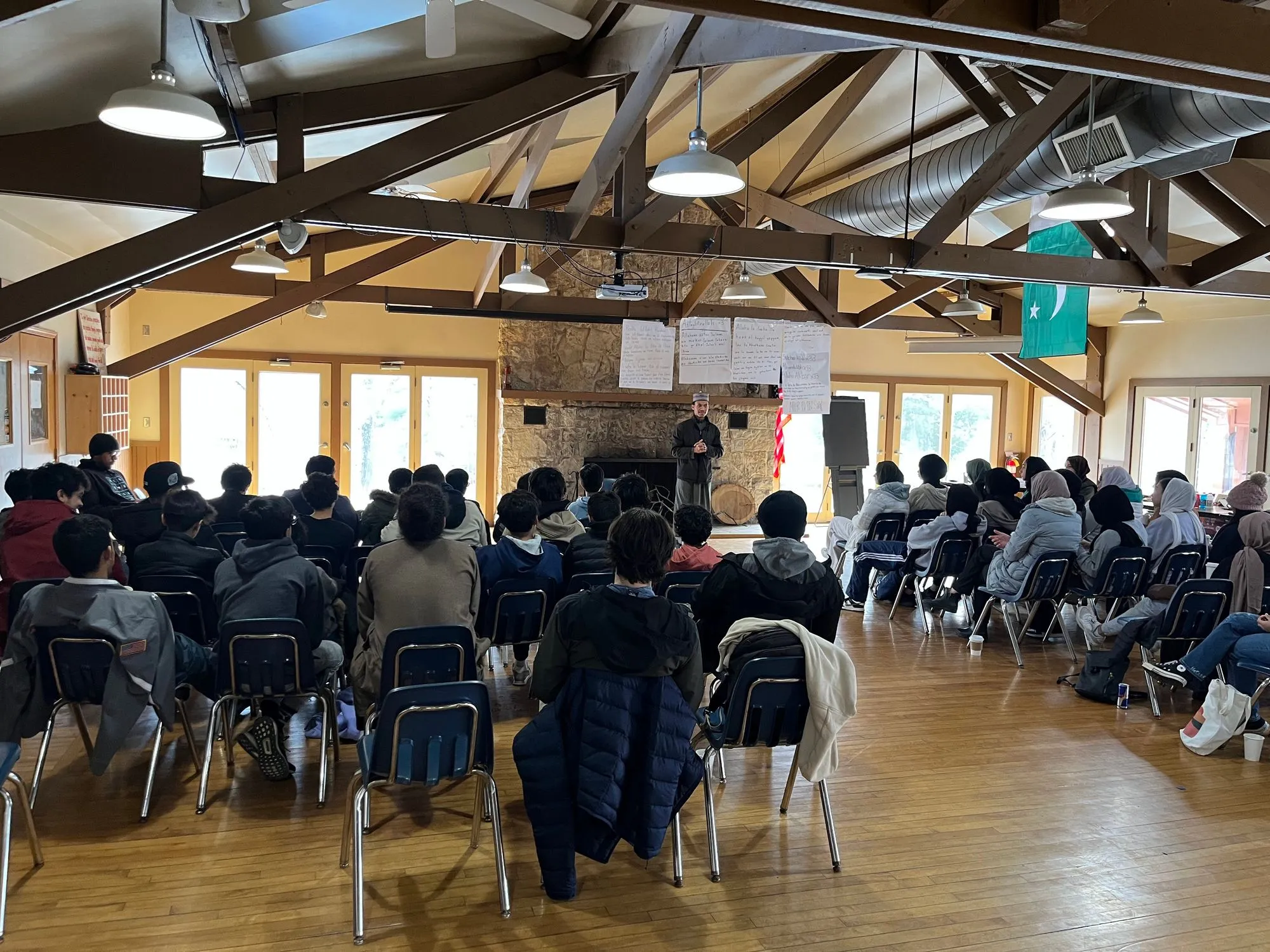
Subjects
Fall SemEster
Year 1
Beginners
MYNA Seminary
Winter SemEster
Year 2
MYNA Seminary
Intermediate
Course Length:
Text Used:
This course explores the Qur’anic and Prophetic descriptions of the events that unfold after resurrection—travelling through the stages of the gathering, accountability, the scales, the bridge, intercession, and ultimately, the final abodes of Paradise and Hellfire. Students will study key verses, hadith, and scholarly discussions that illuminate how these realities shape a Muslim’s worldview, character, and priorities. The course aims to deepen certainty in the Hereafter and inspire a life lived with purpose, consciousness, and hope in Allah’s mercy.
Course Length:
Text Used:
This course provides a foundational study of the rulings related to purification in Islamic law, covering essential topics such as water types, wudu’, ghusl, najāsah, and purification of the body, clothing, and prayer space. Students will examine evidences from the Qur’an and Sunnah along with key juristic principles that inform the practice of tahārah across the madhāhib. Designed to build both understanding and confidence, the course equips learners with the knowledge needed to perform acts of worship with clarity, precision, and spiritual mindfulness.
Summer SemEster
Year 3
MYNA Seminary
Advanced
program Instructors
Program Schedule
Program Information
Registration
Limited Spots Available
Apply for Financial Assistance
Click the link below to apply for financial tuition assistance or to pay your tuition in instalments payments.
Guidelines for Graduation
The Miftaah Lite Seminary Curriculum is centered around 6 Core Subjects
One of the main factors that distinguish our program is its graduation requirements. To complete the program and graduate, students must receive a passing score for each course. To complete the Miftaah Lite program, the student must complete at least 2 courses per semester for a total of 8 courses over two years.
A total of 8 course courses are needed to qualify for the Miftaah Lite certificate. After completing 8 courses of the Lite program, students are encouraged to transfer to the Associate Program located at the Miftaah Campus.
"Miftaah program is amazing for me"
Miftaah program is amazing for me and a great resource to learn Islamic knowledge and I can’t wait to continue taking courses and learning more.
Adel Blazevic
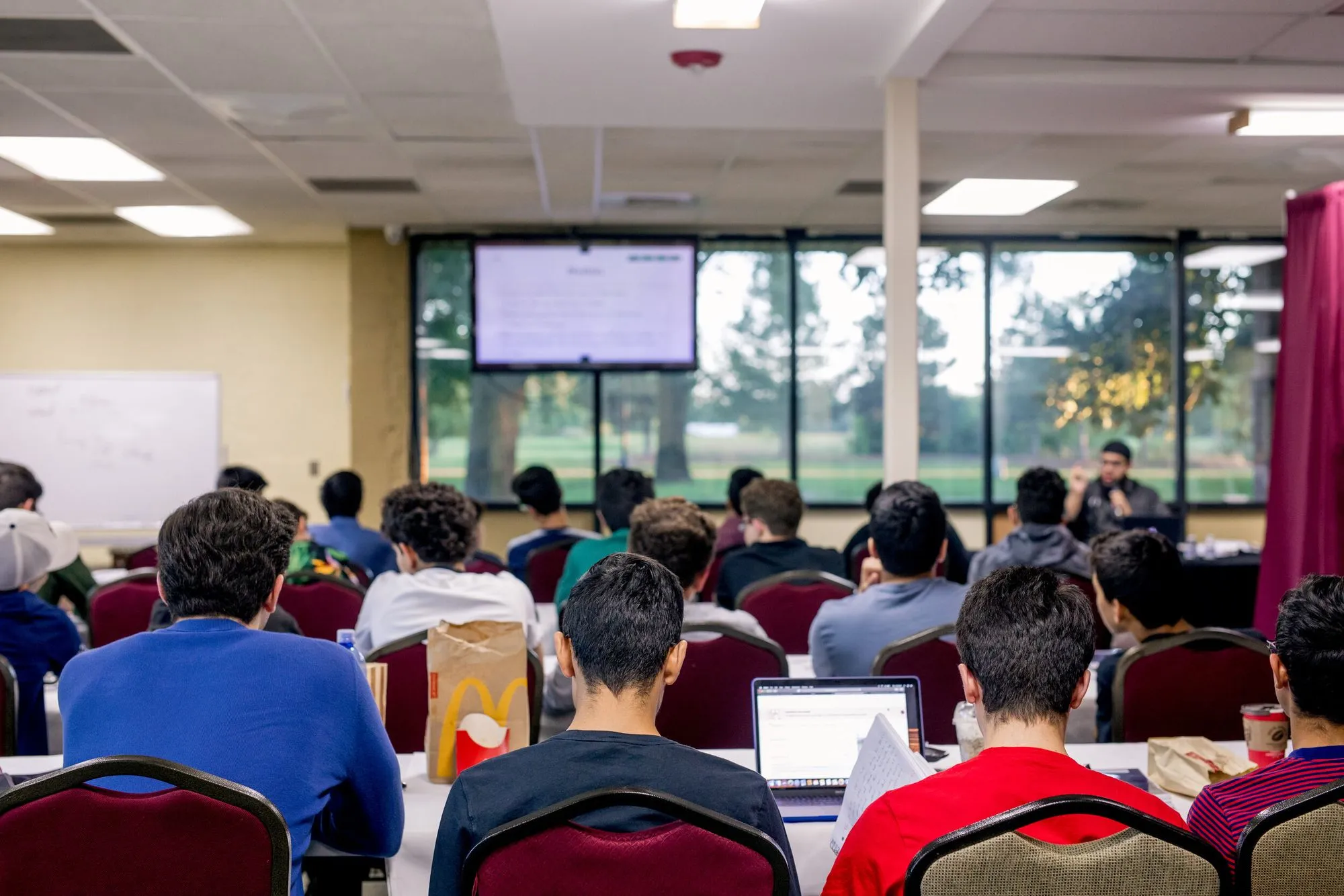
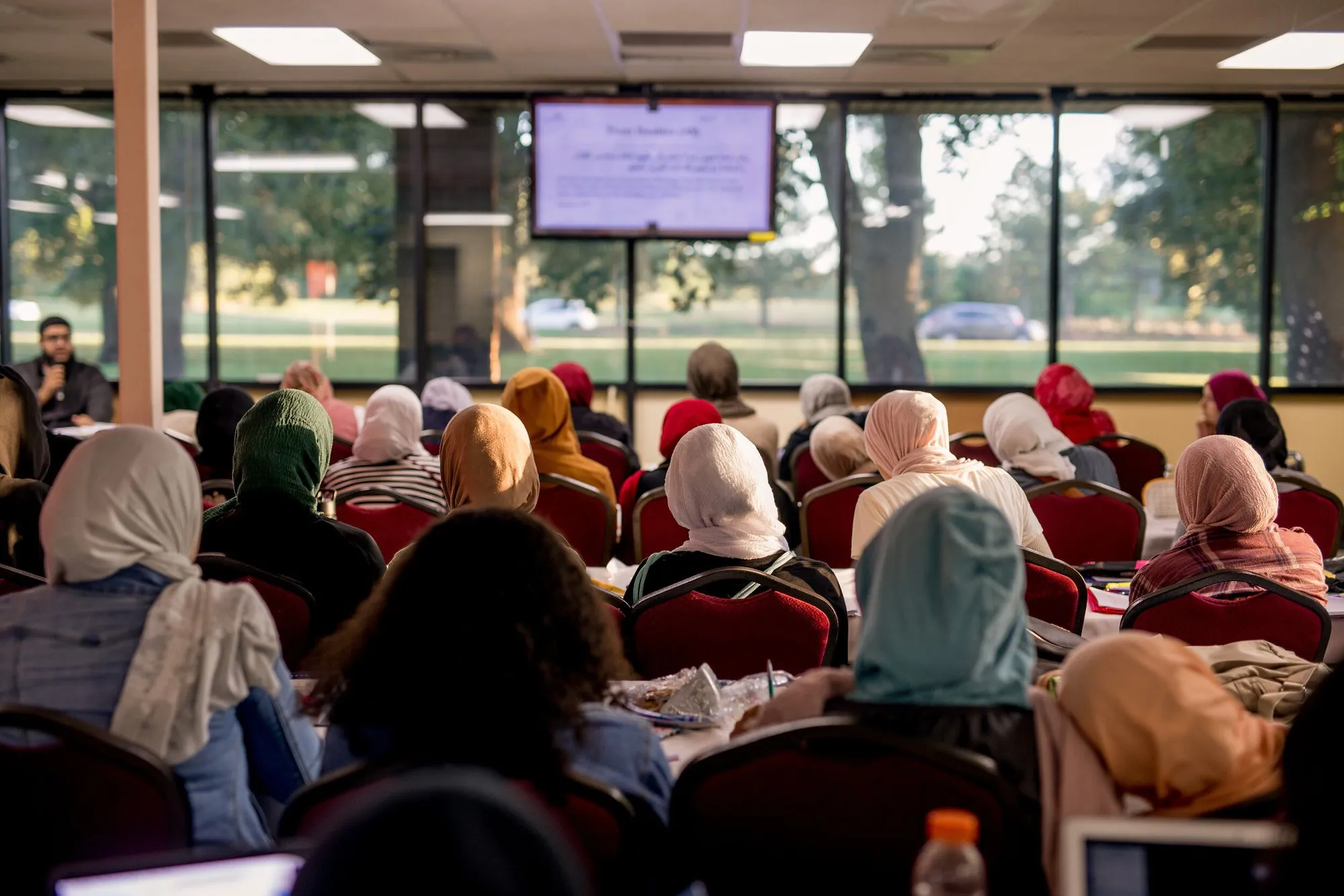
"I am so grateful there is a place to openly discuss issues of faith"
Masha'Allah each class brought with it new gems of learning Alhumdulillah ! I am so grateful there is a place to openly discuss issues of faith such as the women of Medina did with the Prophet (SAWS). I see Miftaah as following the Prophetic tradition, and may its fruits bring generations of scholars and da'iyyahs to continue.
Aalain Harum
Learn more
Not ready to enroll but want to learn more?
Download the program catalog to review program details.
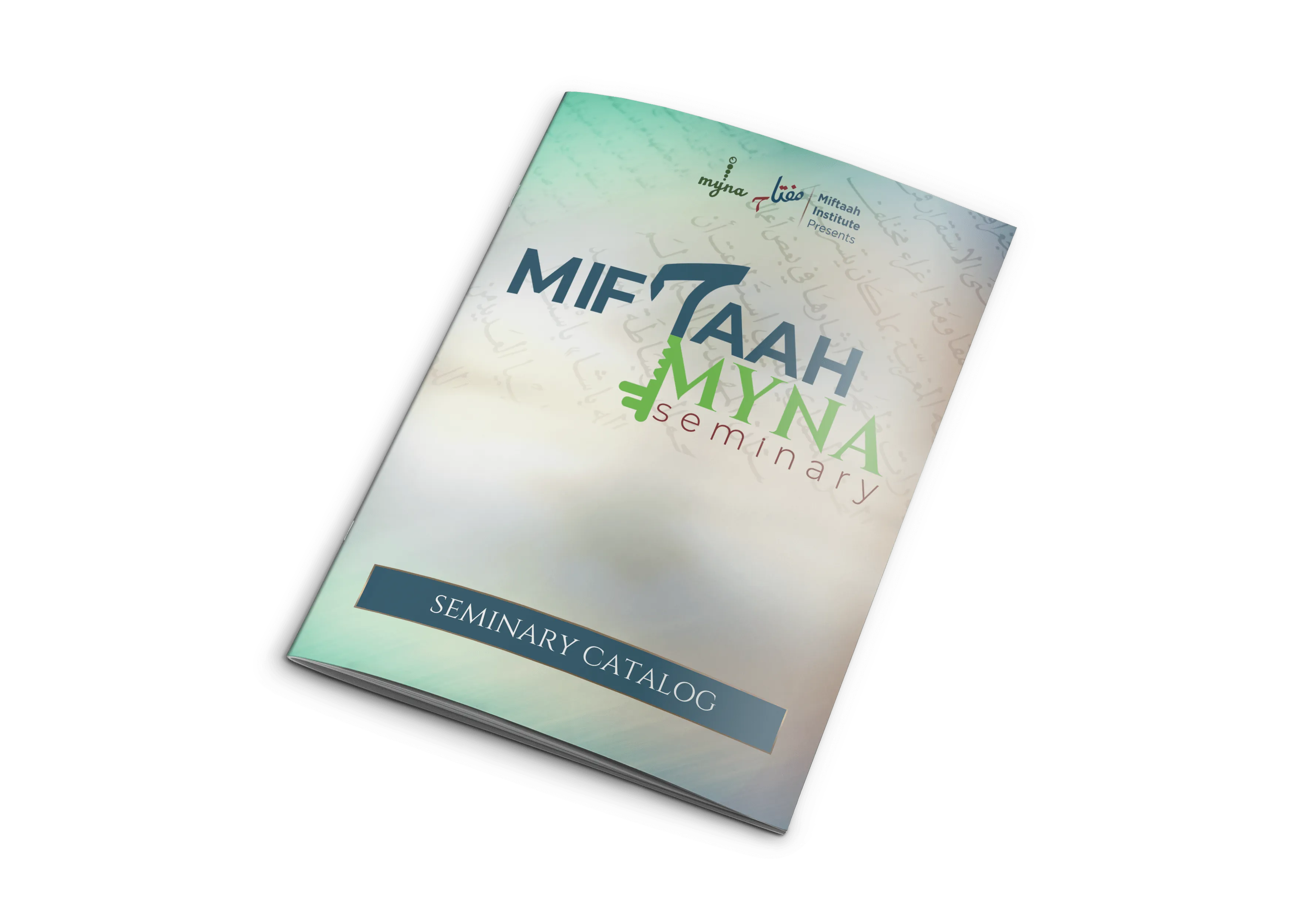
Program Highlights
frequently Asked Questions
What age group is the program suitable for?
The program is open to boys and girls from 13 - 19 years old.
What payment options are available?
Tuition payments may be made per semester.
Where will the classes be held?
Classes will be held online platform via Zoom.
How long is the semester?
The program is 7 weeks long starting on January 26th, 2026.
Which days are the classes held?
Classes are held every Mondays from 7:00 - 9:00 PM EST.


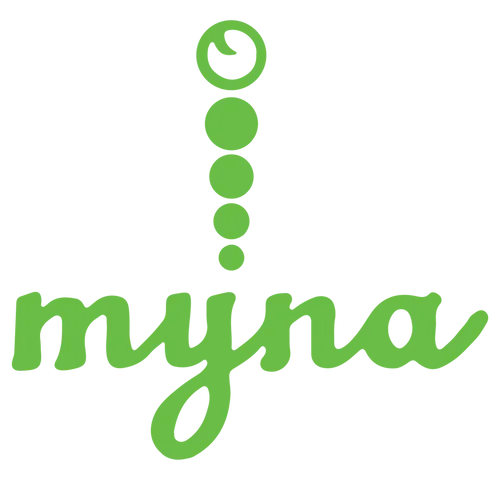
.webp)
.webp)








